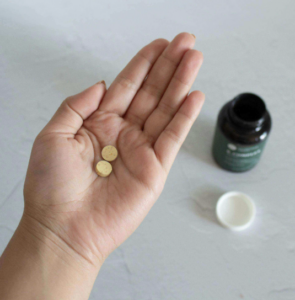Having just experienced a 6-month period of upheaval and uncertainty, I am acutely aware of the symptoms of ongoing stress. In my case, it came with fatigue, headaches, “brain fog,” and insomnia. Doctors report it’s common for people to experience high blood pressure, heart problems, skin conditions, depression, and worsening of conditions like asthma when they experience continued stress. We might not make our best decisions when we’re stressed, potentially affecting relationships and careers. Even body weight and composition can be affected. Stress triggers the release of cortisol, the “fight or flight” hormone that directly contributes to the storage of fat, particularly – just what I don’t need – belly fat.
It’s imperative that we resist the urge to “soldier on” and find the best ways for coping with stress. Assuming your stress is rooted in circumstances you can’t change (if it is related to things you can control, that’s a whole different discussion), your focus needs to be on caring for yourself. During my recent season of stress, I relied heavily on my faith, finding peace in prayer and in meditating on the many blessings in my life. I also looked to my integrated medicine physician for additional ways to soothe my tightly-wound mind and body. Here are some of the strategies for coping with stress that worked best for me.
Move your body.
 When stressed, we tend to curl inward – literally going into an almost fetal position, drawing limbs in and hunching shoulders forward. This posture subconsciously reinforces the feeling that you are under siege. Get up! Move. Walk, run, stretch. Throw your arms out as if welcoming someone. I like to leave my desk for a while and “hang” in a doorway, grabbing the door frame with each hand and leaning forward, stretching out my shoulders and the tight muscles in my upper chest. A lunchtime or evening walk feels good, too. I tried Tai Chi and found “mindful movement” was very soothing. When coping with stress, maybe something more active is right for you – kick-boxing is just the ticket for a friend of mine. The point is to find something that appeals to you, and move.
When stressed, we tend to curl inward – literally going into an almost fetal position, drawing limbs in and hunching shoulders forward. This posture subconsciously reinforces the feeling that you are under siege. Get up! Move. Walk, run, stretch. Throw your arms out as if welcoming someone. I like to leave my desk for a while and “hang” in a doorway, grabbing the door frame with each hand and leaning forward, stretching out my shoulders and the tight muscles in my upper chest. A lunchtime or evening walk feels good, too. I tried Tai Chi and found “mindful movement” was very soothing. When coping with stress, maybe something more active is right for you – kick-boxing is just the ticket for a friend of mine. The point is to find something that appeals to you, and move.
Feed your body.
Cortisol not only directs your body to store fat in preparation for the fight your body senses is coming, it can cause cravings for the high-sugar foods that provide fast energy. This is great if you’re running from a saber-tooth tiger, but if you’re stressed over a situation at work, it’s not very helpful. Be mindful of what you feed yourself; make it something nourishing and soothing, not something that will give you one more thing to be stressed about – pants that won’t zip.
Rest your body.
 I know, I know. Believe me, I know. When I’m stressed, my ability to sleep is the first thing that is disrupted. But I found a few apps, a device, and a breathing exercise that have helped me on all but the nights following the craziest, most difficult days. I downloaded a free app called, “SleepWell.” I’m notoriously hard to soothe to sleep, but this one does it. I also found a device on Amazon with the not-so-catchy name: “Sound and Sleep High Fidelity Sleep Sound Machine” It works! Finally, I mastered the 4-7-8 breathing exercise that is something of a tranquilizer for me.
I know, I know. Believe me, I know. When I’m stressed, my ability to sleep is the first thing that is disrupted. But I found a few apps, a device, and a breathing exercise that have helped me on all but the nights following the craziest, most difficult days. I downloaded a free app called, “SleepWell.” I’m notoriously hard to soothe to sleep, but this one does it. I also found a device on Amazon with the not-so-catchy name: “Sound and Sleep High Fidelity Sleep Sound Machine” It works! Finally, I mastered the 4-7-8 breathing exercise that is something of a tranquilizer for me.
Breathe.
Try the simple 4-7-8 Relaxing Breath exercise when coping with stress. It soothes and allows you to center yourself.
- Place the tip of your tongue against the ridge of tissue just behind your upper front teeth, and keep it there through the entire exercise.
- Exhale completely through your mouth, making a whoosh sound. Close your mouth and inhale quietly through your nose to a mental count of four.
- Hold your breath for a count of seven.
- Exhale completely through your mouth, making a whoosh sound to a count of eight.
- This is one breath. Now inhale again and repeat the cycle three more times for a total of four breaths.
If you have trouble holding your breath, speed the exercise up but keep to the ratio of 4:7:8 for the three phases. With practice you can slow it all down and get used to inhaling and exhaling more and more deeply.
Make time for a massage.
 If your stress is related to finances, check with a local massage school. Students in the final stages of their training must complete a number of hours of massage therapy with actual clients as part of their licensure process. I’ve had some of the best massages I’ve ever experienced at a massage school, and at a very, very low rate. If money is no object, go for it – and ask the therapist to spend lots of time on your scalp, jaw, and temples, places that often get short shrift. Enjoy. Don’t use the time on the table to run through doomsday scenarios. Use it to dream about what you need and want and to melt into the moment.
If your stress is related to finances, check with a local massage school. Students in the final stages of their training must complete a number of hours of massage therapy with actual clients as part of their licensure process. I’ve had some of the best massages I’ve ever experienced at a massage school, and at a very, very low rate. If money is no object, go for it – and ask the therapist to spend lots of time on your scalp, jaw, and temples, places that often get short shrift. Enjoy. Don’t use the time on the table to run through doomsday scenarios. Use it to dream about what you need and want and to melt into the moment.
Write your worries down in a notebook, then set it aside for tomorrow.
It might sound a little crazy, but I found that putting the problems and sorrows I was experiencing down on paper—knowing they would be there for me to work on later—gave me “permission” to stop turning them over and over in my mind so I could rest.
Write your blessings down, too.
Remember to write, read, and reread what’s right with your world, recalling the ways things that worried you in the past either worked out for your good or that season simply passed – and you are still standing.
Throughout a time of stress, focus on what is right, positive, and true. Remember that this, too, shall pass. You’ve been through difficult times before and come out the other side, perhaps with a new scar or two, but with more wisdom and strength as well.







